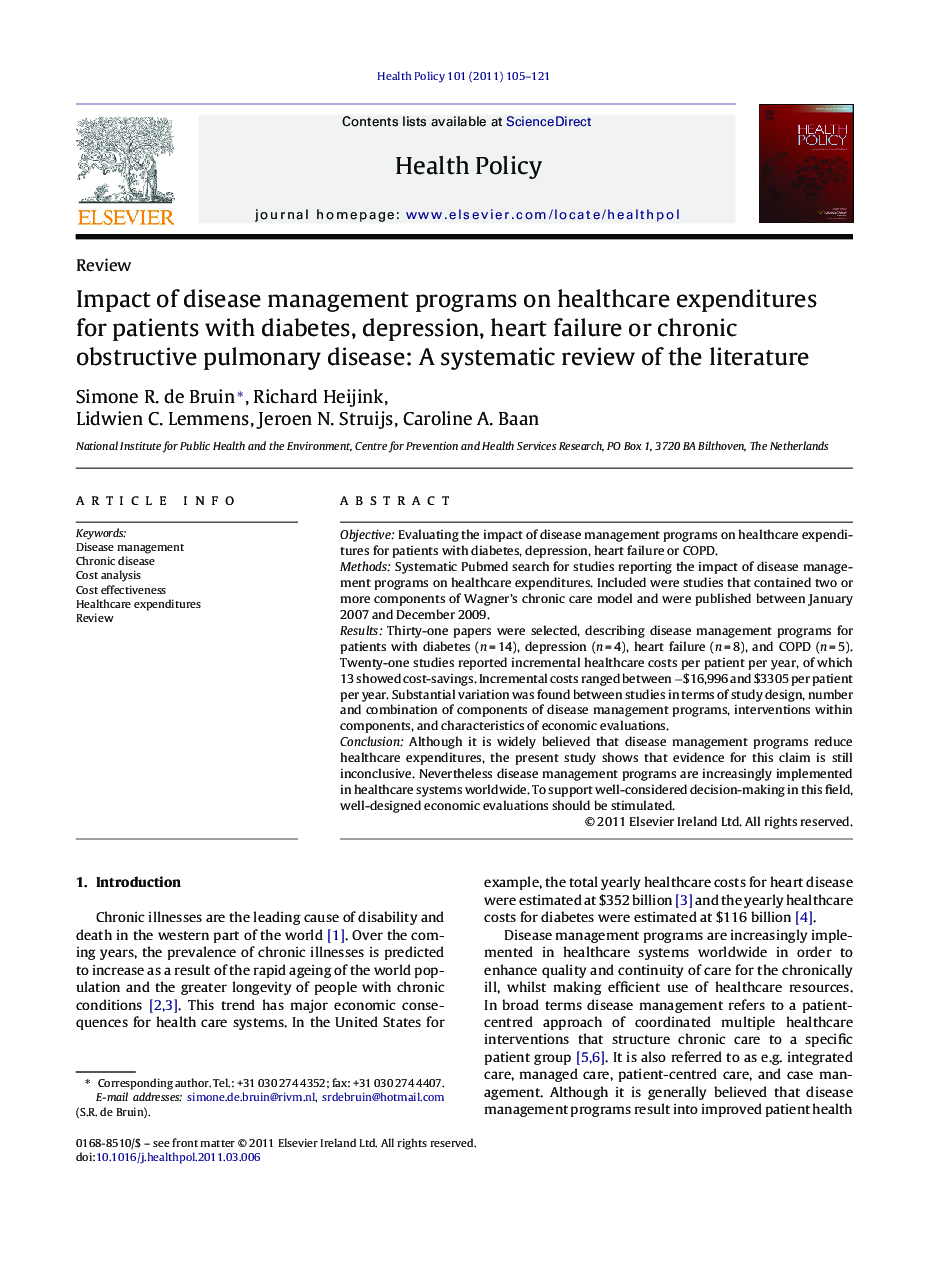| Article ID | Journal | Published Year | Pages | File Type |
|---|---|---|---|---|
| 4198045 | Health Policy | 2011 | 17 Pages |
ObjectiveEvaluating the impact of disease management programs on healthcare expenditures for patients with diabetes, depression, heart failure or COPD.MethodsSystematic Pubmed search for studies reporting the impact of disease management programs on healthcare expenditures. Included were studies that contained two or more components of Wagner's chronic care model and were published between January 2007 and December 2009.ResultsThirty-one papers were selected, describing disease management programs for patients with diabetes (n = 14), depression (n = 4), heart failure (n = 8), and COPD (n = 5). Twenty-one studies reported incremental healthcare costs per patient per year, of which 13 showed cost-savings. Incremental costs ranged between −$16,996 and $3305 per patient per year. Substantial variation was found between studies in terms of study design, number and combination of components of disease management programs, interventions within components, and characteristics of economic evaluations.ConclusionAlthough it is widely believed that disease management programs reduce healthcare expenditures, the present study shows that evidence for this claim is still inconclusive. Nevertheless disease management programs are increasingly implemented in healthcare systems worldwide. To support well-considered decision-making in this field, well-designed economic evaluations should be stimulated.
